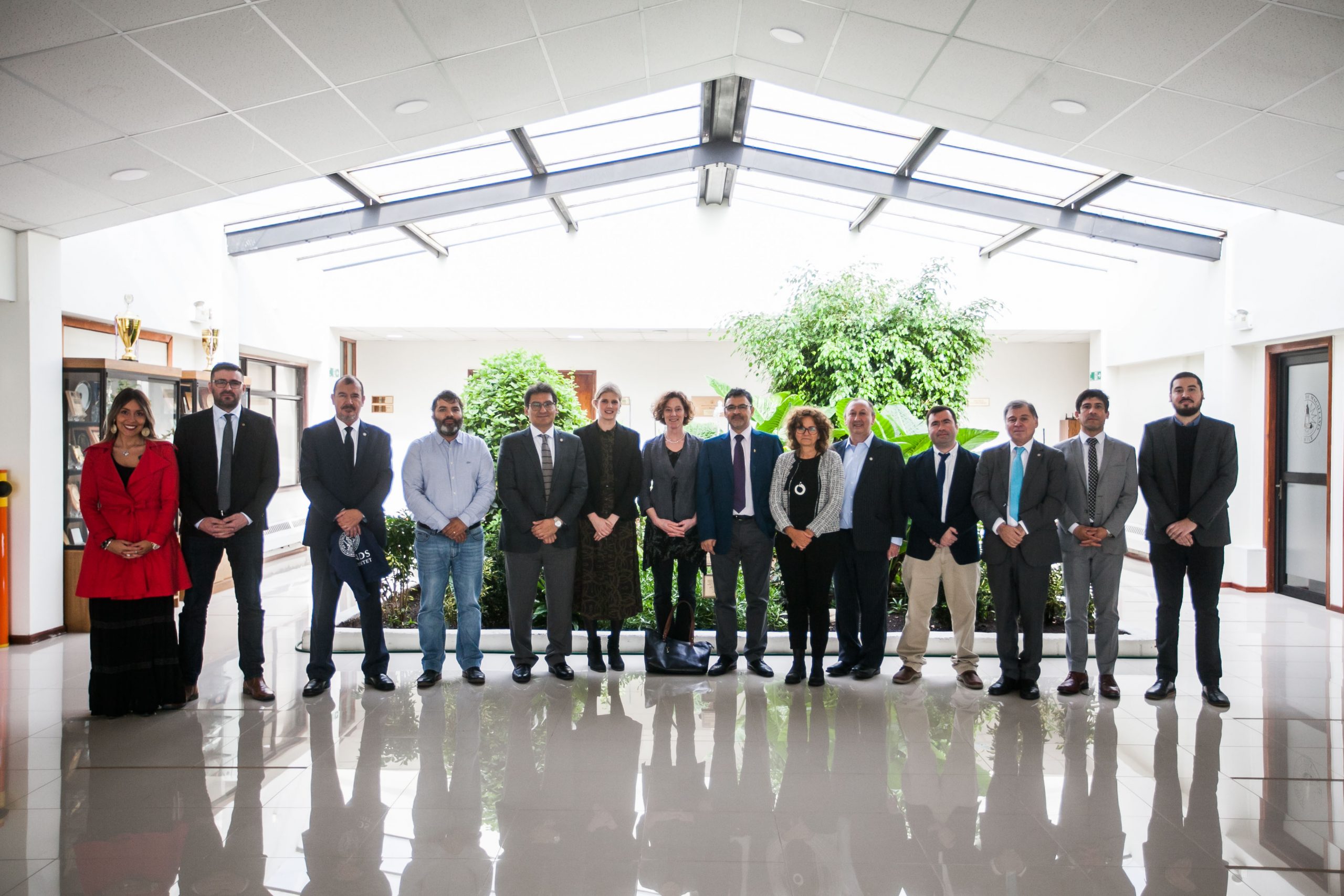The University of Magallanes received the organizers of this academic meeting, in which 14 universities from both countries participated, aspiring to strengthen joint research.
Defining the general guidelines of the Chile-Sweden Forum, for the years 2020 and 2021, was the objective of the meeting of the steering committee of the Chile-Sweden Academic Collaboration Platform (ACCESS), held on March 9th and 10th at the University of Magallanes (UMAG).
This meeting, which seeks to promote and strengthen joint research between 14 universities in both countries on topics that have to do with social changes, natural resources and health, has been held since 2017. This year’s event will be held in the Swedish city of Uppsala next June and the next, in Punta Arenas.

The attendees, from the universities of Lund, Uppsala, Chile and Católica; received, together with the director of International Relations of UMAG, Christian Formoso; institutional representative at ACCESS, the protocol greeting of the host University authorities led by the rector (S) José Maripani. Then they began their work, which included the analysis of the lines of research to be developed, the strategic plan of the network and the preparation of the Forum itself this year, incorporating the gaze towards the fourth version.
“It has been very interesting to know more about the University of Magallanes, to know the region, to prepare all the discussions that are necessary for the Forum that will take place there (Sweden) this year and here next, and also super important to know the strategic lines of research that the University has, because that also helps us to go home and identify the right groups to create that collaboration, which I believe will be the fruit of all this work, “said the representative of the University de Lund, Miguel Cornejo.
In this context, the organizing committee defined the pertinent work on the basis of the Sustainable Development Goals (ODS, in Spanish) established by the United Nations and, in this way, align that purpose with the specific areas of work of each university and/or region. As Cornejo explained, “it is going to be the starting point for a new way of working on the Forum that is going to be held June, in Uppsala, and that will be the starting point towards Magallanes, which, as we agree, will define a specific objective according to the interests ”.
In this regard, Andrés Mansilla, Vice President for Research Affairs and Graduate Studies at UMAG, appreciated the instance because, in his opinion, “we continue to strengthen what Magallanes and Antartica mean as a natural laboratory of world importance.” In this way, he referred to the issues raised will need to be addressed at the 2021 Forum. “These are problems that are important to solve in the region, such as glaciers and the use of water, obesity and being overweight with the prevalent diseases derived from these, conservation and sustainable development to see how there can be productive activities such as tourism, which is handled very well in Europe, but conserving the last pristine regions that exist in the world”, he said.
On the projections of the Chilean-Swedish alliance, Pedro Bouchon, Vice-President for Research Affairs at the Catholic University, pointed out that “the next steps in our medium-long-term vision that we want to achieve from this network is to focus on the impact: how to measure what we are doing, how to disseminate what we are doing and more practical aspects related to the characteristics that the call should have to comply with the impact, essence and relevance of convening and working together with Swedish and Chilean groups, in order to develop the proposal that would be presented ”.
On behalf of the UC, the director of Research Affairs Office, María Elena Boisier, who has been part of the organization since its beginning and the Deputy Director of International Research Affairs, Rodrigo Cevallos, also participated in the meeting.
Other aspects addressed by academic representatives seek to promote actions aimed at developing the mobility and exchange of students and academics, joint scientific production and research projects that incorporate common study interests.